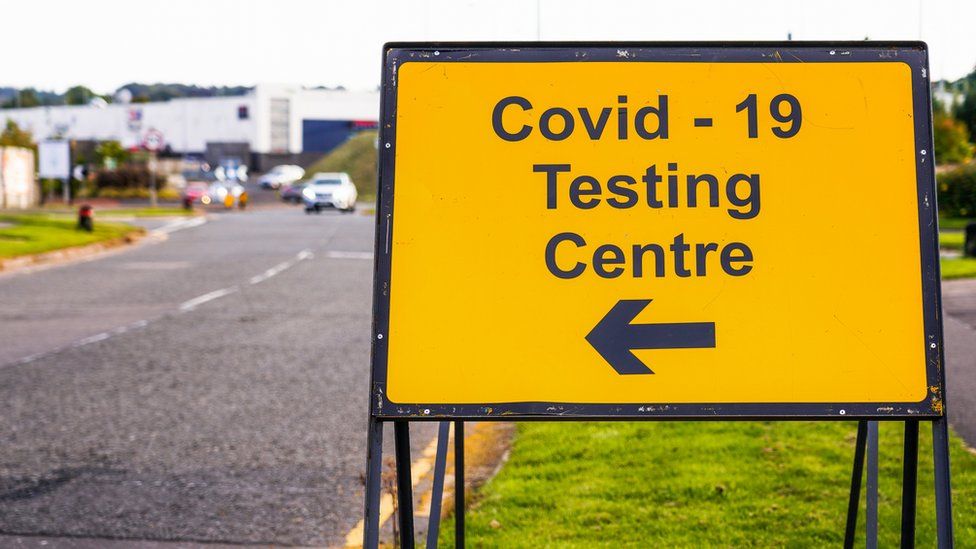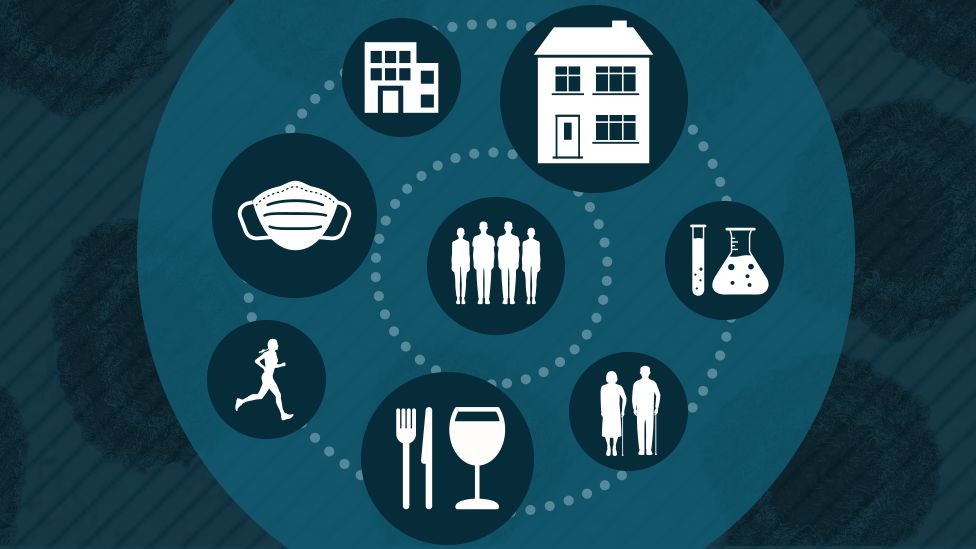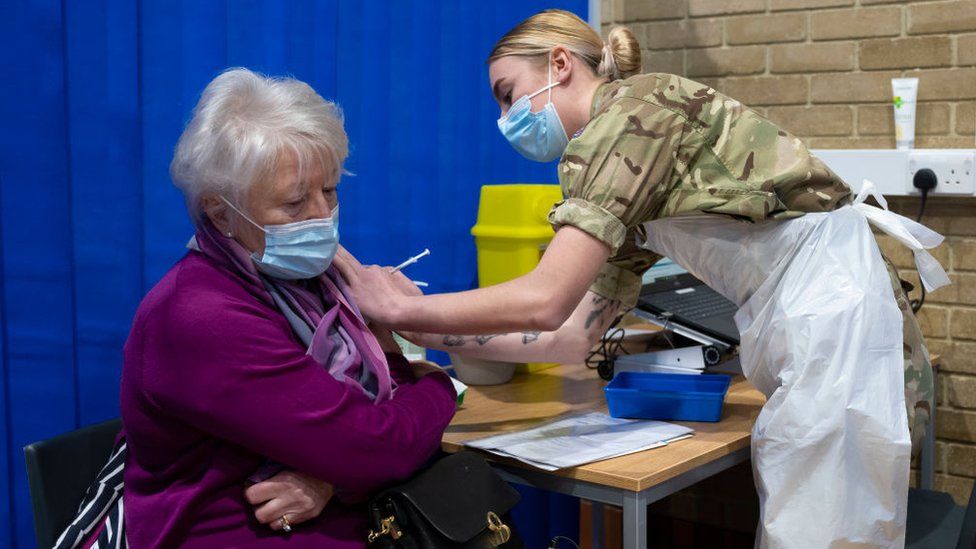All Covid legal restrictions are over in England, as part of the government’s Living with Covid plan.
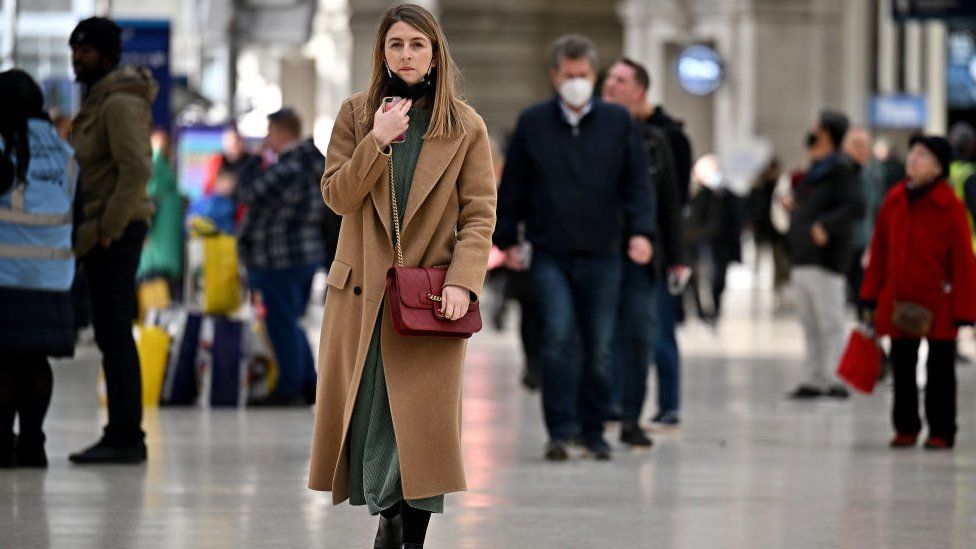
Image source, Getty Images
All remaining legal Covid restrictions have been removed in England, nearly two years after the first rules were introduced.
It means people are no longer legally required to self-isolate if they test positive for Covid – although they are still advised to do so.
The changes are part of the prime minister’s Living with Covid plan, to “transition back to normality”.
Some critics say the plan fails to protect the most vulnerable.
All legal restrictions have already been lifted in Northern Ireland, but Wales and Scotland are easing measures more gradually.
The first Covid regulations were introduced in March 2020, and have ranged from stay at home orders, to bans on travel, to the closures of schools, shops, and restaurants.
This video can not be played
To play this video you need to enable JavaScript in your browser.
The end of restrictions also means an end to self-isolation support payments – which were available to those on low incomes – and the end of routine contact tracing.
Passengers are also no longer required to wear face coverings on buses and Tube trains in London, after Transport for London dropped the requirement.
Although curbs are ending in England, free testing will continue until 1 April – both PCR tests for people with symptoms and lateral flow tests for those without.
Scotland’s deputy first minister John Swinney said the nation was likely to continue with free Covid tests beyond that date, while Northern Ireland’s health minister Robin Swann said he would not be “rushed” into taking decisions on the matter.
While there will no longer be a legal requirement to self-isolate, NHS England bosses have written to healthcare staff to say if they test positive, they should not attend work until they have had two negative lateral flow tests taken 24 hours apart, and at least five days after the initial positive result.
Matthew Taylor, chief executive of the NHS Confederation which represents health bodies, said the government needed to reconsider free testing for key workers, including NHS staff.

What is changing in England?

Image source, EPA
From Thursday 24 February:
- People who test positive for Covid will no longer be legally required to self-isolate
- But they will still be advised to stay at home for at least five full days
- Routine contact tracing will end, so fully-vaccinated close contacts and those under 18 will no longer be legally required to test daily for seven days
- The £500 self-isolation support payment for people on low incomes who test positive for Covid will no longer be available
- Covid provisions for increased statutory sick pay will apply for a further month
From 1 April:
- Free mass symptomatic and asymptomatic testing for the general public will end, and will instead be targeted towards the most vulnerable
- People with Covid symptoms will be asked to exercise personal responsibility when deciding whether to stay at home – until then they are still advised to do so
- Government guidance on Covid passports will end and it will no longer recommend venues use the NHS Covid pass

On Monday, Boris Johnson told MPs that it was time to move from government restrictions to people exercising personal responsibility.
He said the government was able to do this because of high levels of immunity and deaths being “below where you would normally expect for this time of year”.
England has joined Denmark, Norway and Sweden on the list of European countries to have lifted all Covid restrictions – but there have been concerns raised by some.
Doctors’ union, the British Medical Association (BMA), said the government’s plan would likely cause “more uncertainty and anxiety” for the most vulnerable and called for more provisions to protect them.
This video can not be played
To play this video you need to enable JavaScript in your browser.
At a news conference on Monday alongside the prime minister, Sir Chris Whitty said the number of people being infected with Omicron was still “very high”.
Last week the Office for National Statistics (ONS) infection figures estimated that one in 20 people in England had Covid.
It was also announced on Monday that additional booster doses would be offered to all adults over-75 and the most vulnerable over-12s in the UK this spring to help top up their protection against severe Covid-19.

- DEATH BY CONSPIRACY? Dive into the conspiracy underbelly of this small British town
- NOTTINGHAM TO NORTH KOREA: How a conman almost erased football’s oldest club from existence

-
- 12 hours ago
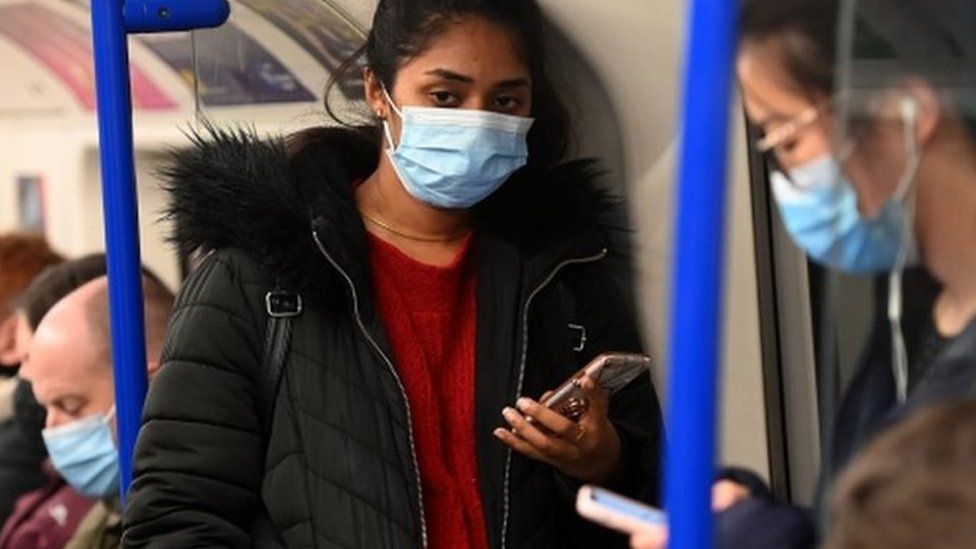
- 10 hours ago
